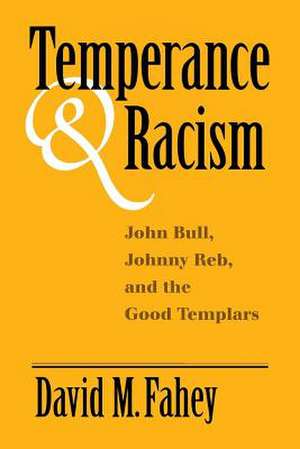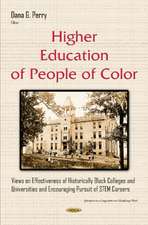Temperance and Racism: John Bull, Johnny Reb, and the Good Templars
Autor David M. Faheyen Limba Engleză Paperback – 6 iul 2014
Preț: 189.89 lei
Nou
Puncte Express: 285
Preț estimativ în valută:
36.34€ • 38.86$ • 30.30£
36.34€ • 38.86$ • 30.30£
Carte tipărită la comandă
Livrare economică 17 aprilie-01 mai
Preluare comenzi: 021 569.72.76
Specificații
ISBN-13: 9780813160030
ISBN-10: 0813160030
Pagini: 224
Dimensiuni: 152 x 229 x 13 mm
Greutate: 0.35 kg
Editura: University Press of Kentucky
ISBN-10: 0813160030
Pagini: 224
Dimensiuni: 152 x 229 x 13 mm
Greutate: 0.35 kg
Editura: University Press of Kentucky
Textul de pe ultima copertă
Temperance and Racism restores the Templars, now an almost forgotten footnote in American and British social history, to a position of prominence within the temperance movement. Lodge rituals, sociable evenings, and denunciations of drink attracted a largely youthful membership in North America and Britain. The group's ideology of universal membership made it unique among fraternal organizations in the late nineteenth century and led to pioneering efforts on behalf of equal rights for women. The Templars' policy toward blacks, however, was more ambiguous. Millions of women and men joined the order after the American Civil War, yet mounting tensions arose over membership for recently freed slaves. The organization split apart in 1876 when Templars in the American South, who wanted to exclude blacks together, and those in Great Britain, where racial exclusion offended many members, could not reach a compromise on the issue. Spurred by a desire to remain a truly international organization, the two sides eventually reconciled in 1887 after southern whites lost their once impressive membership numbers and, consequently, their clout within the order and after British Templars recognized they could not force racial inclusiveness in the American South. Their decision to reject racism in principle while supporting segregation in practice contradicted the Templars' ideal of universal brotherhood. Combined with the years of schism, this spelled the end of international leadership for the order, and their numbers gradually dwindled.















